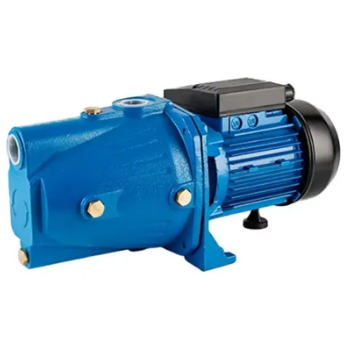In today's rapidly advancing world, efficiency and energy-saving have become the holy grail for industries across various sectors. Whether it's the agricultural, manufacturing, or oil and gas industries, finding new ways to maximize efficiency and conserve energy is critical. One technology that has been making waves in this regard is jet pump technology.
Jet pumps are a type of fluid dynamic device that operate on the Venturi effect. They are commonly used in various applications, including water pumping, well-servicing, oil and gas production, and even sewage systems. The primary principle behind a jet pump is the conversion of the velocity energy of a fast-moving fluid into pressure energy to effectively move another fluid. This makes it an incredibly powerful and efficient tool.

One of the most significant advantages of jet pump technology is its ability to increase efficiency while minimizing energy consumption. Traditional pumps often require significant amounts of energy to generate the desired output. However, jet pumps use a unique design that allows them to deliver higher flow rates with lower power requirements. This improved efficiency not only saves energy but also leads to substantial cost savings for businesses.
The secret to the efficiency of jet pumps lies in their Venturi effect-driven design. By utilizing the narrowing of a fluid flow path, jet pumps can boost fluid velocity. This increased velocity leads to a decrease in pressure, which effectively enables the pump to suction and mix fluids efficiently. This ability to rapidly draw fluid by creating a pressure differential allows jet pumps to work particularly well in scenarios where a high flow rate is desirable.
Another aspect that makes jet pump technology so efficient is its versatility. It can handle a wide range of fluids, from clean water to abrasive slurries and even gases, making it an ideal solution for many industries. Its adaptability allows businesses to use a single pump for multiple applications, eliminating the need for additional equipment and reducing overall complexity and costs.
In addition to efficiency and versatility, jet pumps also offer several other notable benefits. Due to their design, jet pumps have no moving parts, resulting in reduced maintenance requirements and enhanced reliability. This translates to fewer downtime incidents and increased operational efficiency. Furthermore, their compact size allows for easy installation in a variety of settings and makes them suitable for both onshore and offshore use.
As industries continue to prioritize sustainability and eco-friendly practices, energy-saving technologies like jet pumps are becoming increasingly important. The reduced energy consumption of jet pumps helps to curb greenhouse gas emissions and minimize the overall carbon footprint of businesses. Moreover, the energy savings attained through using jet pumps not only benefit the environment but also contribute to long-term cost savings for industries.
In conclusion, jet pump technology represents a significant breakthrough in boosting efficiency and conserving energy. With their innovative design, these pumps offer businesses the ability to increase flow rates while minimizing power requirements. Their versatility, reliability, and eco-friendly nature make them an ideal solution for various applications across multiple industries. By embracing jet pump technology, businesses can save energy, reduce costs, and contribute to a more sustainable future.
Post time: Nov-14-2023
